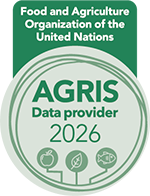Observational validation of Juan Enrique Azcoaga's pedagogical learning theory with CD1 mice
Abstract
Juan Enrique Azcoaga defines learning as a process that affects human and animal behavior. The main objective of the present study is to describe and pre-experimentally validate Azcoaga's pedagogical learning theory through experimentation in mice of non-inbred lines CD1 strain. The pre-experimental laboratory method was used, at an explanatory-predictive level and with a qualitative approach; the procedure was carried out through the resolution of tasks of motivation, tonic-sustained attention and short and long term memory considered within the basic learning devices (DBA), for this purpose two biomodels (female and male) of the CD1 strain were randomly used for each task. The results obtained show that this theory is applicable to animal behavior, so there is similarity in the use of basic learning devices (DBA) in both humans and CD1 mice during the learning process. These findings suggest that this species were capable of identifying, recognizing and differentiating one task from another and achieving the purpose of each one of them, in addition to the fact that its memory allows it to evoke memories that structure its learning, thus confirming the hypothesis proposed.
Downloads
References
ASAMBLEA NACIONAL DEL ECUADOR. Código orgánico del Ambiente. 2017. Ecuador. En Línea: https://bit.ly/3wqIJqK. 18-10-2021.
AZCOAGA, J.E. Pedagogía de las funciones cerebrales superiores en la infancia. Ecos FonoAudiolog. 1: 4-9. 1995.
BENAVIDES, F.J.; GUÉNET, J.L. Líneas genéticamente estandarizadas y los controles de la pureza genética. Manual de genética de roedores de laboratorio principios básicos y aplicaciones. Universidad de Alcalá, Alcalá. Pp. 105-115. 2003.
CASTRO, L. Animal learning. Rev. Wiley Interdiscipl. 1: 89-98. 2010.
CHAMORRO, J. Mecanismos Neurales de Refuerzo por AEIC. Potenciación del aprendizaje y la memoria por autoestimulación eléctrica intracraneal en ratas. Neurociencias UAB, Barcelona. Pp. 12-14. 2012.
FEDERACIÓN DE ENSEÑANZA DE ANDALUCÍA. Aprendizaje: Definición, factores y clases. Rev. Digit. Profes. Enseñanzas. 2: 1-6. 2009.
FELD, V. La obra de Juan E. Azcoaga. Rev. Neuropsicol. LatinoAme. 9: 1-6. 2017.
FUENTES, M.; MENDOZA, R.; ROSALES. A.; CISNEROS. R. Manejo y Cuidado de Ratones. Guía de Manejo y Cuidado de Animales de Laboratorio. 309: 33-45. 2008.
GARCÍA, V.; FABILA, A. Modelos pedagógicos y teorías del aprendizaje en la educación a distancia. Rev. Apert. 3:1-22. 2011.
GONDRA, J. Hull frente a Tolman: las discusiones del año 1934 sobre el aprendizaje. Rev. Anuario de Psicol. 33: 277-289. 2002.
LAVADOS, J. Fines y Medios del Aprendizaje. El cerebro y la educación Neurobiología del aprendizaje. Prisa Ediciones, Chile. Pp. 61-85. 2012.
LUCAS, Y.; RODRÍGUEZ, M. El Cerebro como Componente del Aprendizaje. Rev. Atlante. 2:1-12. 2020.
MAGANI, F.; DAMIANICH, A.; DUAIP, G.; ROJO, D.; TRIGILA, A.; PIMENTEL, J.; FEDERMAN, N. Reconocimiento de objetos por color en ratones Mus musculus cepa C57BL/6J. Rev. Argent. Comport. 5: 24-29. 2013.
MARCOS, J.; FERRÁNDIZ, P.; REDONDO, J. Aprendizaje Humano y Aprendizaje Animal: ¿Una o dos psicologías del aprendizaje?. Rev. Psicol. Gen. Aplic. 56: 45-59. 2003.
MARTÍN, G. Principios de Bienestar Animal. Etología y comportamiento animal. Sitio Argentino de Producción animal, Argentina. Pp. 16-32. 2016.
MARTÍNEZ, P. La concepción del aprendizaje en Juan Enrique Azcoaga. Rev. Argent. NeuroPsicol. 31: 12-40. 2018.
MARTÍNEZ, P.; ARÍSTIDES, O.; MONTÁNCHEZ, M. Juan Enrique Azcoaga (1925-2015): pionero de la Neuropsicología del aprendizaje: In Memorian. CienciAmérica. 7: 1-12. 2018.
MORENO, F. Dimensión Socioambiental. Análisis Psicopedagógico de los alumnos de educación secundaria obligatoria con problemas de comportamiento en el contexto escolar. UAB. Barcelona. Pp. 9-14. 2001.
MORGADO, I. Psicobiología del aprendizaje y la memoria. Rev. Cuadernos Inform. 10: 221-233. 2005.
MOURELLE, C.; HERRERO, E.: RICCA, M. Recomendaciones para manipulación y sujeción de ratas y ratones de laboratorio. Rev. Invest. Cien. Anim. Spei. Domus. 9: 39-47. 2013.
ROMERO, E.; HERNÁNDEZ, N. El papel de la memoria en el proceso lector. Rev. Umbral Científ. 19: 24-31. 2011.
RUBIO, D.; MENDOZA, R. El aprendizaje y el campo pedagógico: Algunos conceptos fundamentales. Rev. Praxis Saber. 9: 19-39. 2018.
SANTIBÁÑEZ, G.; DOMINICHETTI, J.; SANHUEZA, M. El Conocimiento Animal. Rev. Psicol. 12: 35-52. 2003.
SARRATE, M.; PÉREZ, M. Educación de las personas adultas: situación actual y propuestas de futuro. Rev. Educ. 336: 41-56. 2005.
SHERWIN, M.; GLEN, F. Cage colour preferences and effects of home cage colour on anxiety in laboratory mice. Rev. Anim. Behav. 66: 1085-1092. 2003.
SLUCKIN, W. Hacia una explicación del Imprinting. Rev. LatinoAme. Psicol. 7: 299-304. 1975.
TOVAR, B. Coherencia del modelo pedagógico y la evaluación del aprendizaje en una universidad de Bogotá. Rev. Praxis Pedag. 16: 53-70. 2016.
VALLEJO, A. Análisis de la Mente-Cerebro-Conducta desde la Ciencia y la Filosofía. Rev. Hallazgos. 5: 87-100. 2006.
VICENS, P.; REDOLAT, R.; CARRASCO, M. Aprendizaje espacial y laberinto de agua: metodología y aplicaciones. Rev. Psicothema. 15: 539-544. 2003.
ZENOFF, A. Aprendizaje Pedagógico. Psicol. Lenguaje, Aprendizaje. 1: 77-89. 1987.

Copyright (c) 2022 Jennifer Andrea Aponte-Zumba, Pedro Carlos Martínez-Suárez, Geovanny Genaro Reiván-Ortiz, Andrés Alexis Ramírez-Coronel

This work is licensed under a Creative Commons Attribution-NonCommercial-ShareAlike 4.0 International License.


















